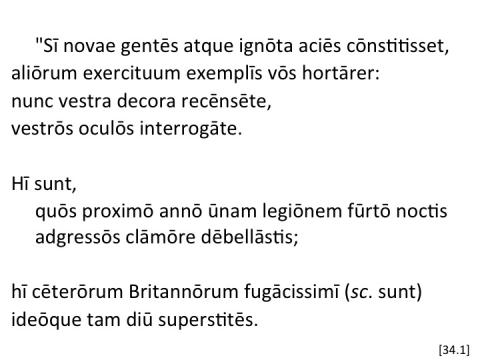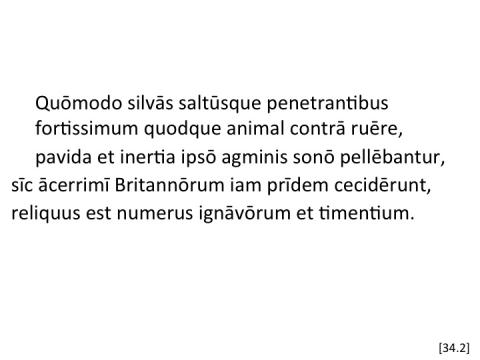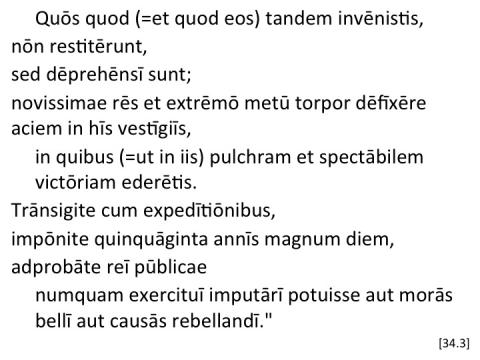[34.1] "Sī novae gentēs atque ignōta aciēs cōnstitisset, aliōrum exercituum exemplīs vōs hortārer: nunc vestra decora recēnsēte, vestrōs oculōs interrogāte. Hī sunt, quōs proximō annō ūnam legiōnem fūrtō noctis adgressōs clāmōre dēbellāstis; hī cēterōrum Britannōrum fugācissimī ideōque tam diū superstitēs. [34.2] Quōmodo silvās saltūsque penetrantibus fortissimum quodque animal contrā ruēre, pavida et inertia ipsō agminis sonō pellēbantur, sīc ācerrimī Britannōrum iam prīdem cecidērunt, reliquus est numerus ignāvōrum et timentium. [34.3] Quōs quod tandem invēnistis, nōn restitērunt, sed dēprehēnsī sunt; novissimae rēs et extrēmō metū torpor dēfīxēre aciem in hīs vestīgiīs, in quibus pulchram et spectābilem victōriam ederētis. Trānsigite cum expedītiōnibus, impōnite quinquāginta annīs magnum diem, adprobāte reī pūblicae numquam exercituī imputārī potuisse aut morās bellī aut causās rebellandī."
34
Text Read Aloud
Suggested Citation
Cynthia Damon, Tacitus: Agricola. Carlisle, Pennsylvania: Dickinson College Commentaries, 2016. ISBN: 978-1-947822-09-2. https://dcc.dickinson.edu/tacitus-agricola/34



